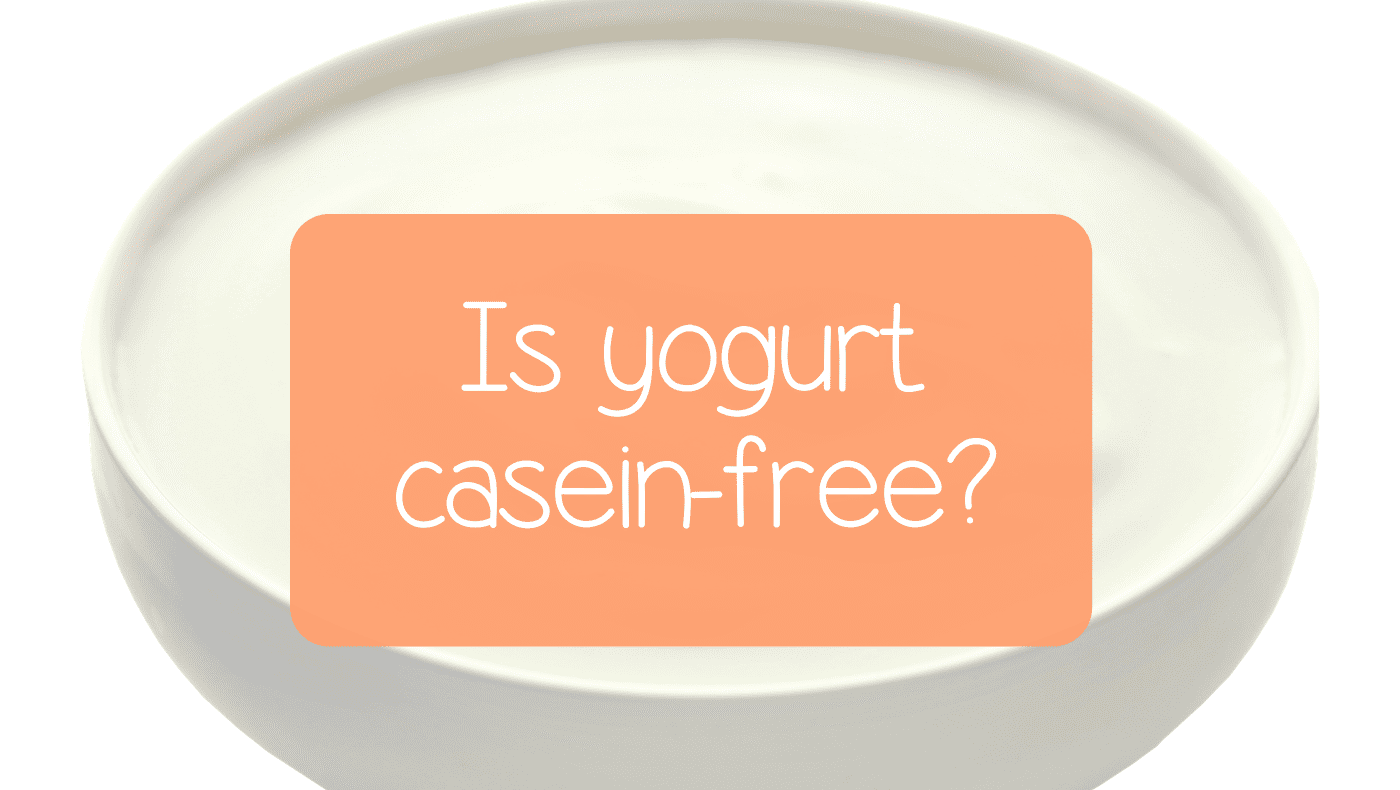Last updated on April 15th, 2025 at 04:22 am
Yogurt is a popular dairy product that is rich in calcium, protein, and probiotics.
It can be eaten plain or used as a topping for various dishes.
There are several types of yogurt available on the market today, including Greek yogurt, coconut yogurt, and plant-based yogurt.
Yogurt has many health benefits, from improving digestion to helping regulate blood sugar levels.
It’s also a great source of vitamins and minerals, including vitamin B12, zinc, phosphorus, and riboflavin.
Yogurt has been linked to a decrease in inflammation and an increase in the beneficial bacteria in your gut.
However, for those with dietary restrictions or specific health concerns, understanding the ingredients and potential allergens in yogurt becomes crucial.
One such ingredient that often raises questions is casein, a protein found in milk found in some yogurts.
Many individuals wonder whether yogurt is casein-free and suitable for their needs.
In this blog post, we aim to shed light on this topic and provide you with a clear understanding of yogurt casein-free.
So, let’s dive in and explore the world of yogurt and casein!
What is Casein free?
Simply put, casein-free refers to foods that do not contain any trace of the milk protein casein.
This means that any food or product labeled as “casein-free” is guaranteed to be free from this allergen.
Casein is often added to processed foods to improve texture or stabilize ingredients, but it can also be found naturally in milk, yogurt, and other dairy products.
Is yogurt casein-free?
To answer the question “Is yogurt casein-free”? Yes and No
There are two answers to this question because it depends on what type of yogurt you’re referring to.
Yogurt that is produced from a mammal such as a cow is not casein-free, but if you’re making yogurt out of coconut milk, almond milk, or any other alternative milk, then it would be considered casein-free.
If your child is on a dairy-free diet, you’re gonna want to stay away from any yogurt that is produced from a mammal.
You will want to stick with yogurt that is produced using almond milk, coconut milk, or any other alternative milk.
This is very important because sometimes casein sneaks into different foods, such as ice cream and anything that’s mammal milk-based is going includes casein.
It is very important to look at the labels when it comes to yogurt.
I often opt to just make yogurt at home for several reasons.
Mainly due to the fact that it will not be loaded with excess sugar whenever I make it at home.
I also know exactly what ingredients it has in it.
I often use coconut milk to make my yogurt.
I find that coconut milk yogurt is just as creamy, and it’s full of probiotics.
Types of Yogurt| Dairy Free Yogurt
Almond Milk Yogurt: Almond milk yogurt is an excellent way to get a creamy texture without casein.
It is also high in vitamin E, making it a healthy choice for those who are lactose intolerant or sensitive to dairy products.
Coconut Milk Yogurt: Coconut milk yogurt is another delicious option that does not contain casein.
It is full of probiotics and has a creamy texture.
Soy Milk Yogurt: Soy yogurt is made from soybeans and can be an excellent option for those who are lactose intolerant or sensitive to dairy products.
It is high in protein, calcium, and vitamin B12, making it a great source of nutrition.
Oat Milk Yogurt: Oat yogurt is made from oats and is a great option for those who are looking for a dairy-free alternative.
It has a thick, creamy texture and is packed with probiotics, making it an excellent choice for people looking to add some extra nutrition to their diet.
Almond Milk Yogurt: Almond yogurt is a great vegan alternative for those looking to avoid animal products or who are lactose intolerant
Cashew Milk Yogurt: Cashew yogurt is a non-dairy alternative made from cashews.
It has a mild flavor and an incredibly creamy texture, making it a great option for those looking for a dairy-free yogurt option.
No matter which type of yogurt you choose, it’s important to remember that aiming for low-sugar, non-GMO, and organic products is the best.
This will ensure you are getting the most nutritious yogurt available.
By making sure you are consuming quality ingredients, you can make sure your body is receiving all the benefits of eating yogurt.
Boost Your Gut Health with Bravo Yogurt
If you’re looking for a probiotic-rich yogurt that supports gut health, Bravo Yogurt is an excellent option. It contains a unique blend of beneficial bacteria and colostrum, designed to promote a healthy microbiome and immune system.
Coconut Yogurt
Coconut yogurt is made from coconuts and has an amazing creamy texture.
It’s a great alternative to dairy-based yogurts if you are vegan or lactose intolerant.
Coconut yogurt also provides many of the same health benefits as regular yogurt, including being high in protein, calcium, and probiotics.
However, it’s important to watch out for added sugars in coconut yogurt, as some brands can be high in sugar and calories.
One important health benefit of coconut yogurt is that it contains a healthy dose of medium-chain triglycerides (MCTs).
These powerful fats help to promote weight loss, reduce appetite, and increase metabolism.
It also helps to improve digestion, boost the immune system, and maintain healthy skin.
You can find coconut yogurt in most grocery stores and health food stores.
Make sure you read the label and choose one with no added sugars or artificial ingredients.
For a delicious snack, try adding coconut yogurt to smoothies, oatmeal, or fruit salad.
Transitioning to a casein-free diet can be challenging initially, but with a few simple swaps, such as finding an alternative yogurt, it can be easily achievable.
Try incorporating casein-free yogurt into your diet today and start reaping the health benefits.
Related articles
- How to transition your child to a gluten- and dairy-free diet
- Top foods to avoid for kids with autism
- Essential steps to improve your child’s nutrition
- Explore my storefront for kids’ & family nutrition guides and healthy recipes
- Is Rice Gluten-Free?
Is yogurt casein-free? Did you know the answer before reading this post? Leave a comment below.





0 Comments